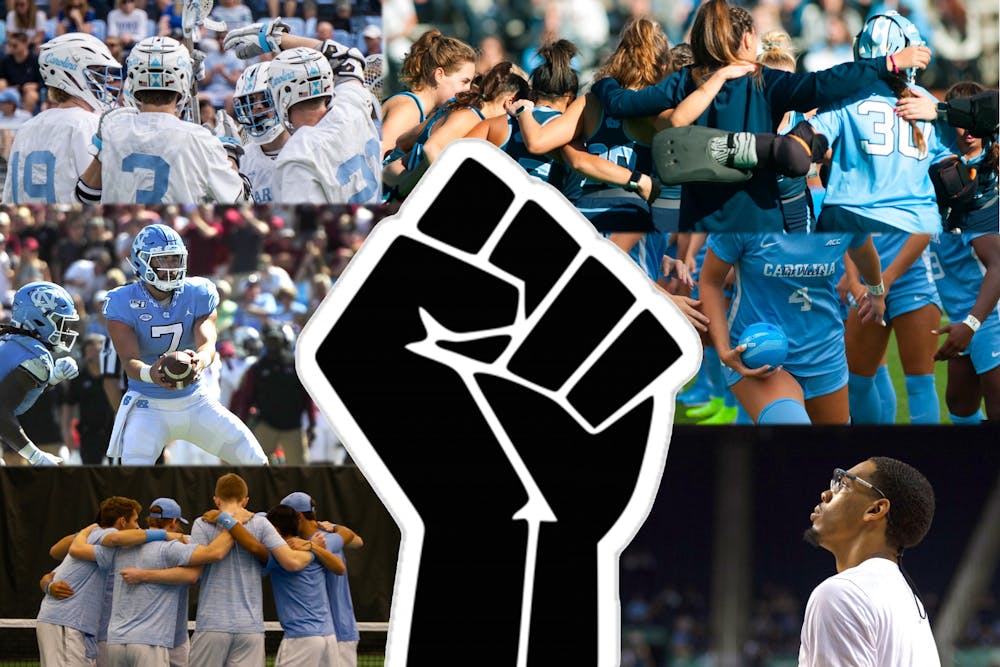From the Astros to the Vikings, sports teams and organizations nationwide have published statements condemning police brutality and racial injustice in response to a surge in protests across the country.
UNC was no exception, with many of North Carolina's varsity sports programs making public statements or taking action in the days following the events and initial protests.
Matthew Andrews is a history professor at UNC, who has taught classes that address how sports and race intersect throughout U.S. history. Upon reading many of the statements published by UNC's athletic programs, Andrews said he appreciated the sentiments put forth, but they had one crucial flaw: timeliness.
“In all honesty, my first reaction was, ‘What took you so long?’” Andrews said. “I feel like the opportunity has been there for so long for people in prominent positions to make strong statements like this. I’m glad people are doing it, absolutely. Doing it is better than not doing it, 100 percent, but I wish people had taken stronger stances on these important issues earlier.”
Andrews also expressed his longstanding frustration with, “general statements that express a need for unity and coming together.” One example Andrews referenced was North Carolina's head men's basketball coach Roy Williams, whose official statement did not explicitly include terms such as racism or police brutality.
Andrews said he was "disappointed" by such statements, saying general language is simply not specific enough to address the issues. In his view, using specific language that refers directly to issues of racism is “important” and “symbolic.”
“I do believe there are degrees of statements out there, and I think some people have said the right thing, and some people have pointed towards the right thing, but not quite,” Andrews said. “In some of these statements, when you say ‘police brutality’ or ‘Black Lives Matter,’ you’re making a critique of very specific things. Sometimes you need to critique things to promote other things.”
Len Elmore, a sports management professor at Columbia University and 10-year NBA veteran, said any statement, no matter how strong, is only as good as the solutions that come out of it. Elmore — who teaches a course dealing with athlete activism and social justice — emphasized the power that athletes and protesters can have in pressuring teams and organizations to act.
“I think there’s a genuine understanding that if [organizations] don’t do something, then this is kind of a tinderbox here,” Elmore said. “Where do we go next? The demonstrations haven’t ceased, and they don’t look like they’re going to end anytime soon. The most encouraging part … is that, unlike past demonstrations, these demonstrations are pretty diverse in their participation. It’s not just the Black community or brown community gathering together trying to fight the power. It’s people who are part of the power structure that are out there demonstrating and putting their safety at risk in order to send a message.”




